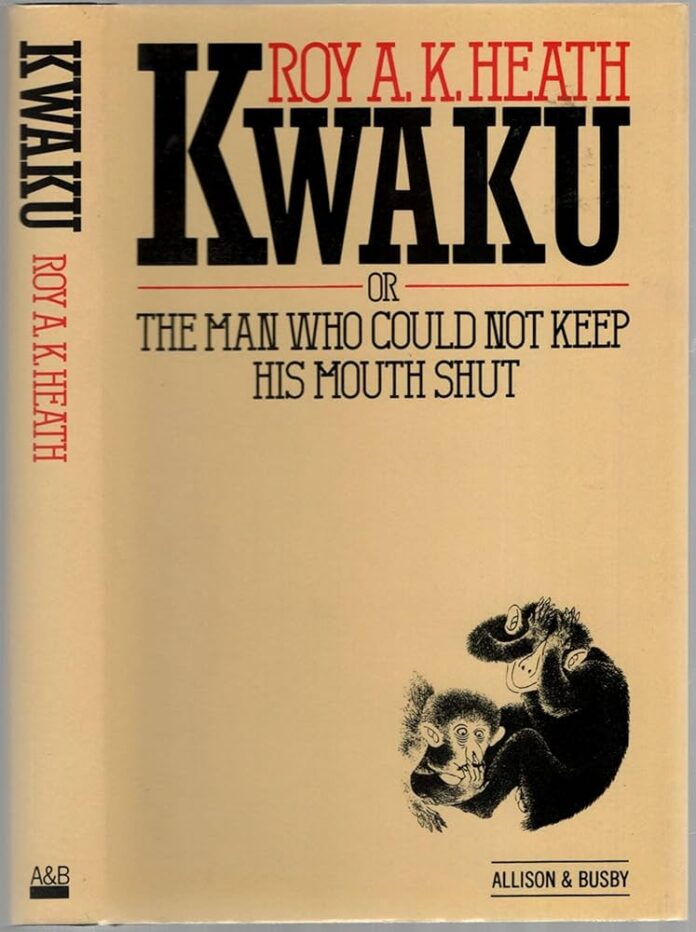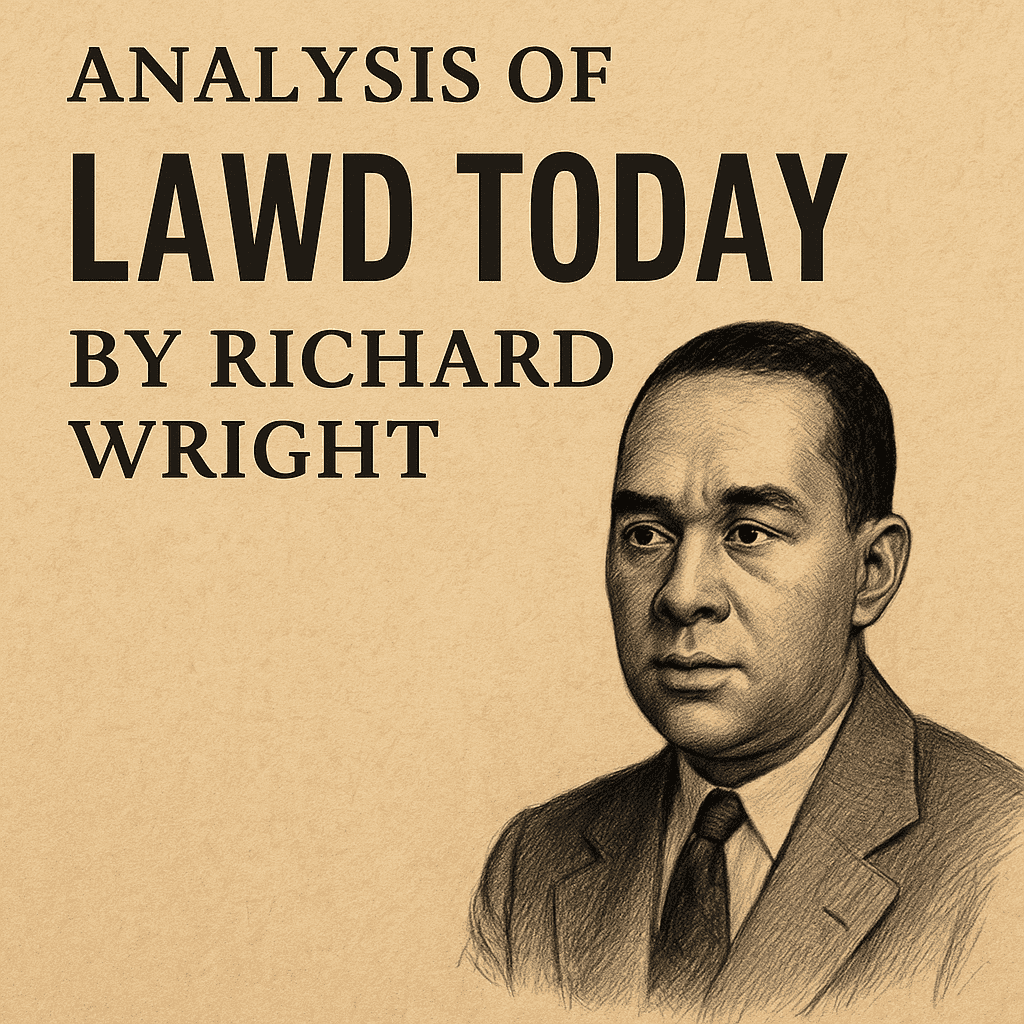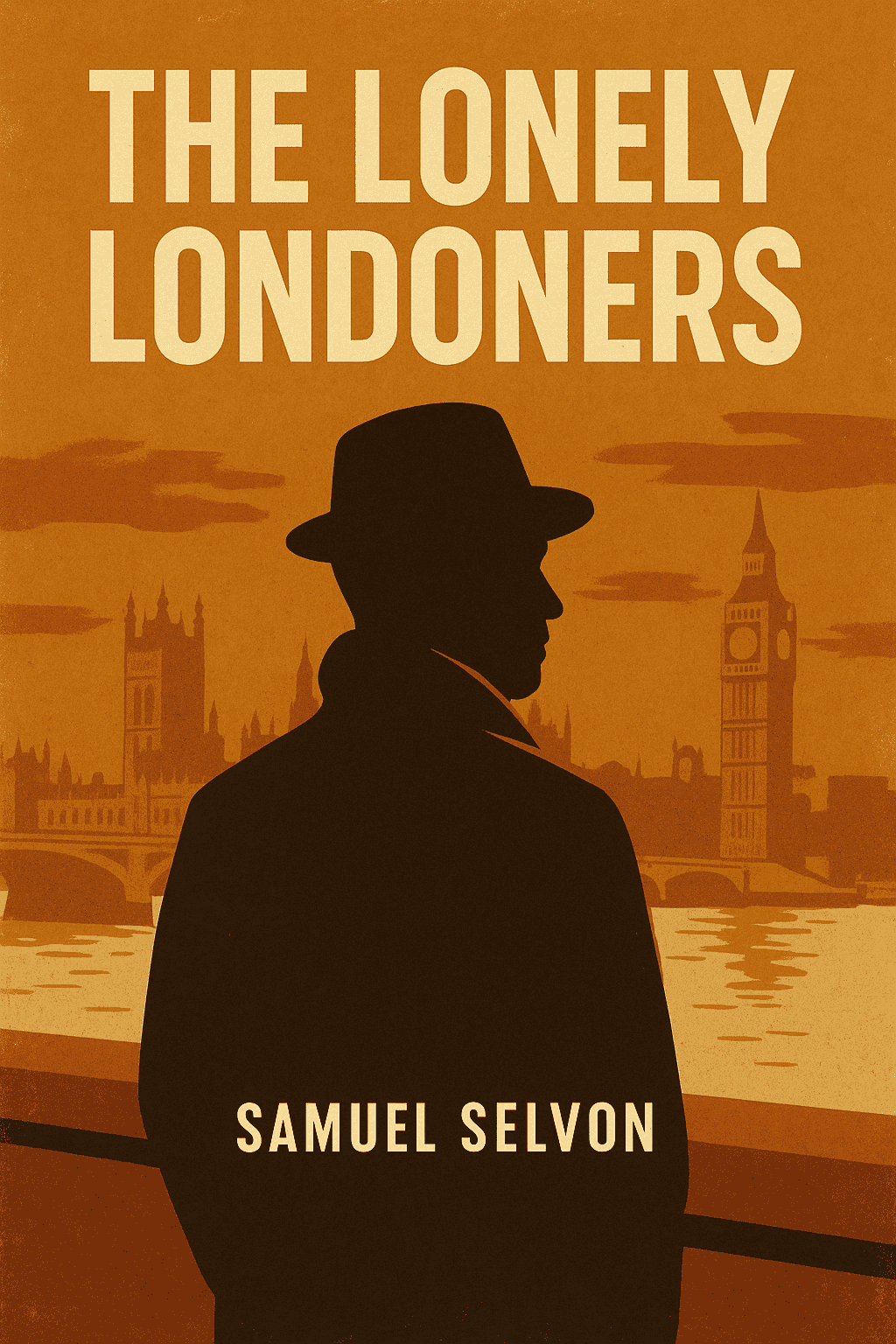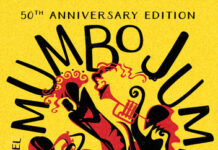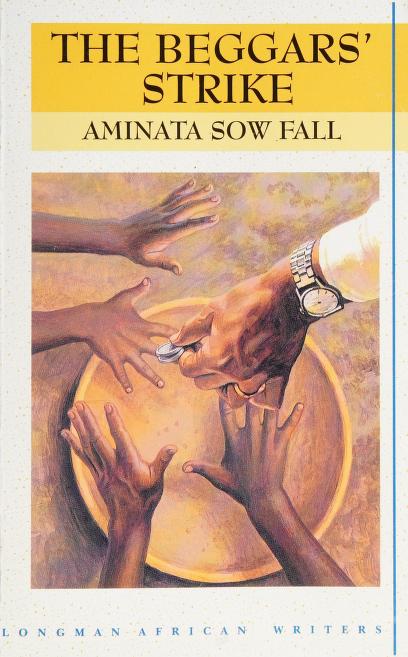🎉 Holiday Promo! Get Study Guides for 10+ WASSCE Texts — Just ₦5,000 (July 27 – Sept 18)
Kwaku: Or, The Man Who Could Not Keep His Mouth Shut is a tragic novel by Roy A. K. Heath. It is set in Guyana in the second half of the twentieth century and was first published in 1982.
Just like Roy Heath’s earlier five novels, Kwaku was praised in British and American newspapers and magazines. Reviewers liked the energy of the novel, its humour, and how it used the everyday language spoken by people in Guyana. They also noticed the sadness and serious events that ran through the story.
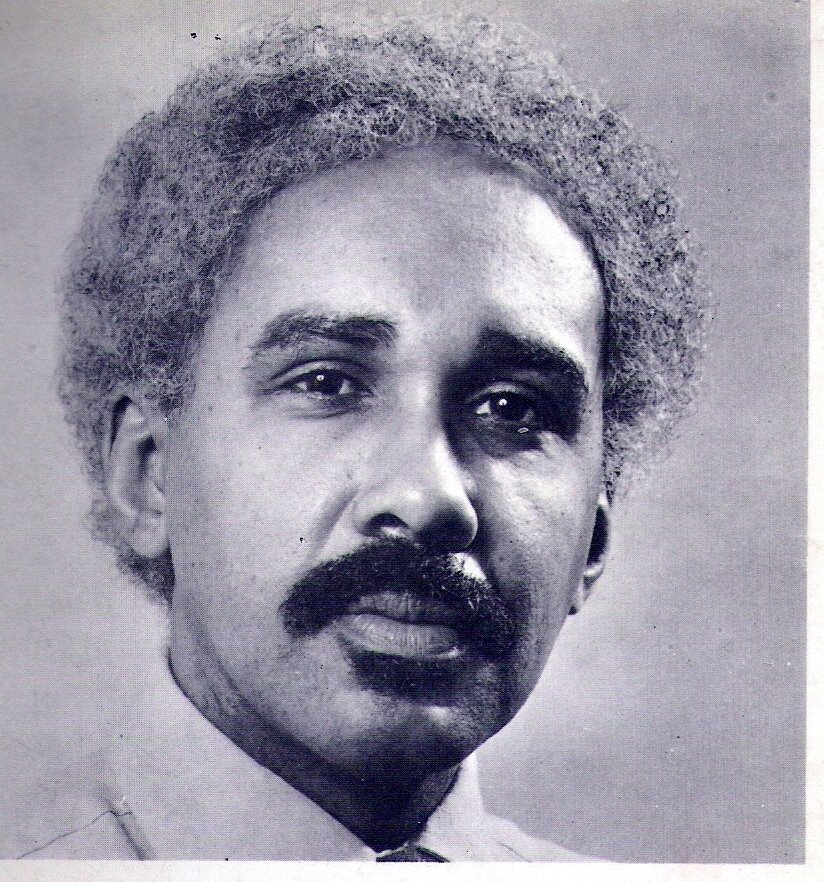
Roy A. K. Heath was born in Guyana but lived in England. His writing has been compared to that of V. S. Naipaul, another famous Caribbean writer. However, unlike Naipaul, Heath has not received much attention from academic scholars. One reason, according to critic Charles R. Larson, is that Heath does not strongly protest social or political problems in his books, as many writers from developing countries often do.
Even though the novel focuses on family life, the home, and village life, it also deals with political issues. Roy Heath once said that Guyana’s independence in 1966 greatly impacted him and helped him decide to become a writer. The political problems in Guyana during that time appear in the background of the story and give it depth.
Even more important in the novel are the folktales and traditional stories that Heath heard as a child in Guyana. He uses these stories in all his novels, but they play a very big role in Kwaku. In the novel, Kwaku is a man who loves telling stories. He often escapes from difficult situations or causes new problems through his storytelling. This gives the novel much of its humour.
At the same time, some of the most emotional and touching parts of the story happen when Kwaku tells stories to his wife and children. These stories help bring the family closer together. They also connect the family to the wider community around them.
By the end of the novel, the reader also feels like part of this community. This community is united by a shared love for stories, language, and tradition.
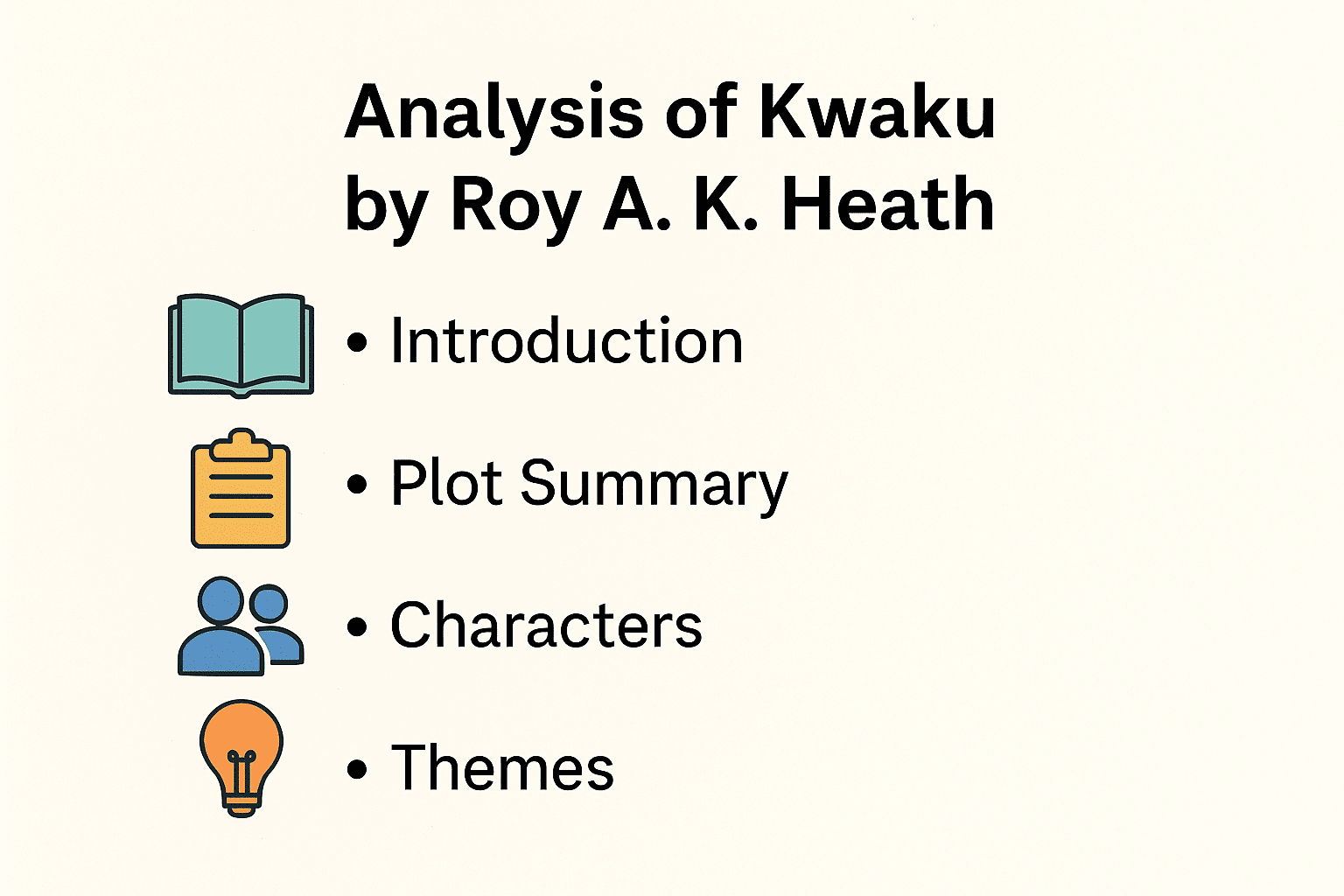
Plot Summary of Kwaku
Kwaku: Or, The Man Who Could Not Keep His Mouth Shut (1982) follows the life of Kwaku, an orphaned and bowlegged man who often gets into trouble because he talks too much. He is from a poor background and has risen from being a shoemaker in a rural Guyanese village (C village) to becoming a well-known healer in the city of New Amsterdam.
Even as a child, Kwaku wants fame and respect. This desire leads him into funny and sometimes embarrassing situations. He is not a bad person, but he cannot control what he says. His habit of boasting and inventing stories makes people in his village distrust him. Still, he sees himself as important and even gives his uncle a long list of qualities he wants in a wife: such as her job, how tall she should be, how educated she is, and how she should eat.
Kwaku eventually marries Gwendoline, a woman from outside the village who doesn’t know about his bad reputation. Marriage changes him for the better. He becomes responsible and works hard as a shoemaker’s apprentice. He also becomes a caring husband and father.
Later, Kwaku tries to get rid of his grey hairs. He goes to his strange neighbour, Mr. Barzey, who only has one tooth. Mr. Barzey shows him photographs that open Kwaku’s mind to the wider world. This leads Kwaku to dream of a bigger and better life.
Kwaku’s life starts to fall apart when a plague of locusts destroys the coconut trees that many villagers depend on. Most people become poor. Kwaku’s family suffers so much that he sends two of his children to live with relatives. His old friend Blossom Dean offers help, but this makes Gwendoline jealous. Then, Kwaku mistakenly causes a flood in the village, which ruins the farmers’ crops. He is briefly protected by Blossom and her boyfriend Wilfred, but later arrested. Mr. Barzey takes the blame, and Kwaku is freed. Tired of being poor, he decides to try his luck in the city.
In New Amsterdam, Kwaku becomes a shoemaker again. One day, he cures a neighbour’s heart problem using garlic. People begin to see him as a healer. His reputation grows, and he becomes wealthy. He sends money home, dresses well, and feels proud.
However, during a visit to C village, Kwaku again lets his mouth get him into trouble. He promises a fisherman that he can use his powers to bring back the man’s daughter. When he fails, the fisherman uses obeah (a kind of curse) to strike Gwendoline blind.
Back in the city, Kwaku continues working, but Gwendoline’s blindness causes problems at home. She cannot control the children, and everything begins to fall apart. Kwaku returns to the village to fix things, but nobody wants his healing services anymore.
When he finally goes back to New Amsterdam with his family, another healer has taken his place. Kwaku is no longer popular. His family becomes poor again. They are forced to live with the same shoemaker he worked for when he first came to the city.
By the end of the novel, Kwaku’s life is full of sadness. His twins are wild and violent. They beat him up. Gwendoline becomes a drunk, and Kwaku now searches through garbage bins to find food scraps to sell as pig food. His favourite daughter, Philomena, has a baby outside of marriage. His sons have joined a Rastafarian commune and no longer listen to him.
The novel ends with Kwaku dancing in a rum shop just to get money for cheap alcohol, while Gwendoline dreams of her peaceful village life in the past.
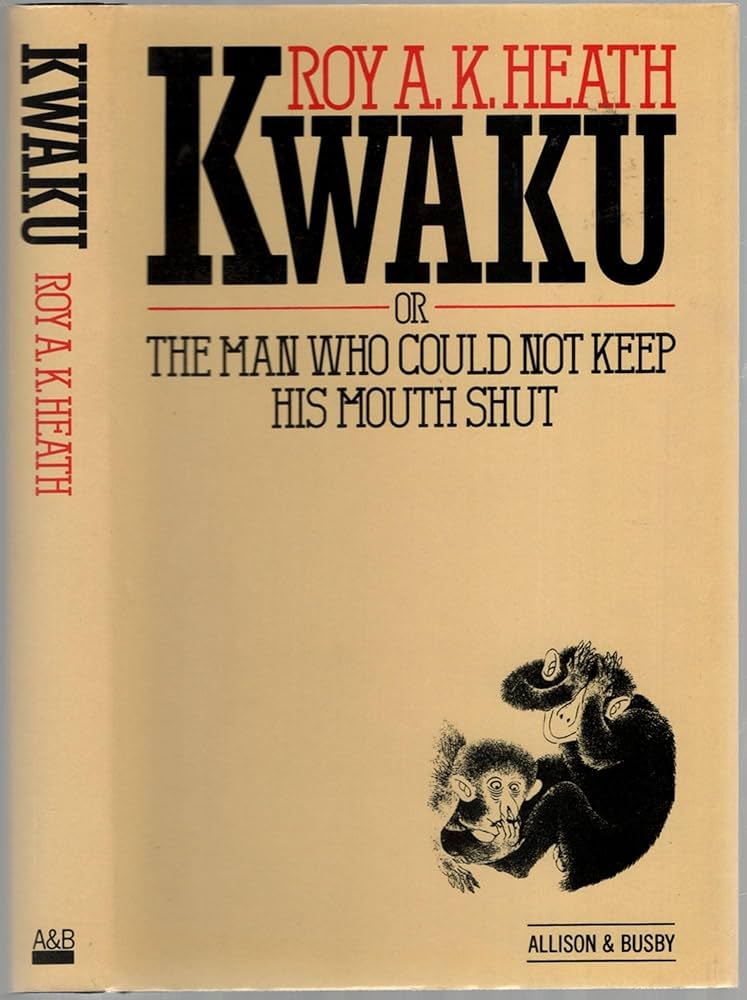
Characters in Focus
The characters in Kwaku include Kwaku, Gwendoline, Blossom, and Barzey.
Kwaku Cholmondeley
Kwaku is the protagonist of the novel. He is an orphan who is raised without affection by an uninterested uncle. He has physical oddity; he is bowlegged. And he has the habit of talking too much.
Kwaku is deeply ambitious and full of dreams. He constantly wants recognition, respect, and success: even if it means stretching the truth.
While his big mouth often gets him into trouble, he is not a bad person. In fact, he is very loyal to his family and tries his best to provide for them.
Kwaku is a comic hero. He is absurd at times, but not foolish. His struggle to rise above poverty and become someone important makes him relatable and tragic. He tries different paths in life—shoemaking, healing, even fame—but reality always pulls him back. His decline into poverty and humiliation at the end of the novel is heartbreaking.
Miss Gwendoline
Gwendoline is Kwaku’s wife through an arranged marriage. At first, she is a competent, strong, and intelligent woman who brings stability to Kwaku’s life. She is loyal to her husband and helps him become more responsible. However, her life takes a dark turn when a curse makes her blind.
After losing her sight, she becomes emotionally and physically weak, struggles to control her children, and eventually turns to alcohol. Her gradual breakdown is one of the most emotional parts of the novel.
She also struggles with jealousy, especially towards Blossom, Kwaku’s old friend. Still, Gwendoline is not just a jealous wife. She is a complex woman who genuinely cares for her family and tries to keep things together, even as they fall apart.
Blossom Dean
Blossom is Kwaku’s oldest friend and also serves as his “conscience.” She is educated and thoughtful: she is often referred to as the village bookworm.
Like Gwendoline, she has a strong connection to Kwaku and tries to guide him toward a better life. She helps him in times of need, even giving him shelter when he is in trouble.
Blossom also bears one of Kwaku’s children. This creates tension between her and Gwendoline. Their relationship is marked by rivalry and jealousy, even though both women genuinely want what’s best for Kwaku. Blossom represents wisdom and emotional strength.
Mr. Barzey
Mr. Barzey is one of the most unique characters in the novel. He is Kwaku’s one-toothed neighbour and a self-proclaimed healer. He also has a passion for photography, which he sees as a way to capture spirits and preserve the disappearing traditions of the past. His life reflects the conflict between modernity and tradition, and between personal dreams and family obligations.
His own family doesn’t support his interests. For example, his daughter-in-law uses his photography darkroom sink to wash dishes.
Tired and disrespected, he dies, but not before giving his photo album, his life’s work, to Kwaku. This shows the kind of bond they shared.
Kwaku’s Uncle
Kwaku’s uncle raises him after his mother dies and his father disappears. He is cold and emotionally distant, showing little love or support. This lack of affection in Kwaku’s early life may explain Kwaku’s constant need for attention and validation from others.
Philomena
Philomena is Kwaku’s favourite daughter. As a teenager, she becomes flirtatious and later gives birth to a child out of wedlock. Her behaviour shows how the family breaks apart over time, especially when Gwendoline loses her control and Kwaku is away chasing success. Philomena’s decline mirrors the general collapse of the family structure in the novel.
Rona
Rona is the daughter closest to Gwendoline. Although the novel does not focus heavily on her, her presence indicates the emotional bonds within the family, especially the mother-daughter relationship, and adds to Gwendoline’s heartbreak when she starts losing influence over her children.

Themes in Kwaku
Kwaku is characterised by themes like ambition, family, tradition, and dream versus reality.
Ambition
Ambition is a central theme in Kwaku. The protagonist, Kwaku Cholmondeley, has big dreams of being rich, respected, and admired. From an early age, Kwaku desires glory and success, but his actions are often misguided. His tendency to exaggerate and boast makes him appear unreliable, especially when he lies about his talents and plans.
His ambition drives him to take risks, like promising to heal a fisherman’s daughter (a promise he cannot fulfil), or trying to become a healer despite lacking formal training. These acts of ambition push Kwaku further away from his goal.
He dreams of a better life but can’t seem to control the consequences of his ambitions, which leads to his downfall. Ultimately, Kwaku’s ambition is a double-edged sword; it makes him and unmakes him.
Family
Family is another important theme in the novel. Kwaku’s relationships with his wives, children, and even his uncle reflect his role as both a provider and a flawed individual.
Kwaku’s first wife, Miss Gwendoline, and his lifelong friend, Blossom Dean, play pivotal roles in his life. While they are both sources of support, they also act as anchors, trying to pull him back to reality when his dreams of grandeur take him too far.
However, Kwaku’s loyalty to his family is unquestionable, even as he fails to provide for them in meaningful ways. His children are affected by the tensions in the family, especially as Gwendoline’s condition worsens. Gwendoline’s gradual blindness isolates her, and her relationship with Kwaku becomes strained. Kwaku’s efforts to protect his family and create a better life ultimately fail, and the family is caught in a cycle of poverty, jealousy, and conflict.
Tradition
Tradition is deeply rooted in the characters’ lives, particularly through the practices of storytelling, folk healing, and customs passed down through generations. Kwaku is influenced by the Guyanese stories and myths he grew up hearing, which become central to the narrative. His use of storytelling to bond with his family serves as a way of passing on these traditions and creating community.
Mr. Barzey, the faith healer and photographer, also represents the clash between tradition and modernity. His practice of capturing spirits with photography symbolises his attempt to preserve a world that is disappearing, combining the spiritual with the technological. This blending of old and new highlights the tension between tradition and the changes happening in the characters’ lives.
Modernity
The novel explores the impact of modernity on Kwaku and other characters. While Kwaku initially seeks a traditional life (through shoemaking and family life), the world around him is changing, and he must adapt. Mr. Barzey’s use of photography, a modern technology, to capture spiritual images is a reflection of the new world that is slowly replacing the old.
However, Kwaku is often left behind by these changes. His efforts to make a living and gain respect in a modernising world lead him to resort to a blend of traditional and modern practices, like when he becomes a healer.
His attempts notwithstanding, Kwaku’s failure to embrace the modern world fully leads to his eventual downfall. The story suggests that while tradition has its place, the modern world brings both challenges and opportunities, which Kwaku struggles to navigate.
Dreams vs. Reality
A major theme in Kwaku is the contrast between dreams and reality. Kwaku is a dreamer, always imagining himself as someone great, but his reality rarely lives up to his fantasies.
His high expectations for himself and for his wife and children often lead to disappointment and failure. For example, his arranged marriage to Gwendoline is based on his unrealistic expectations for a perfect partner, and he does not live up to his promises.
Similarly, his desire to be a healer and to succeed in New Amsterdam is driven by the dream of wealth and respect, but it is marred by his inability to fulfil his own promises and ambitions. The stark contrast between Kwaku’s dreams and the harsh reality of his life adds depth to his character. It makes him a sympathetic figure, as readers can relate to the idea of struggling to make one’s dreams come true despite constant setbacks.
Receive Literary Updates through our Social Media Channels:
- WhatsApp: Literature PADI
- Telegram: Literature PADI
- YouTube: @literaturepadi
- Facebook: Literature PADI

